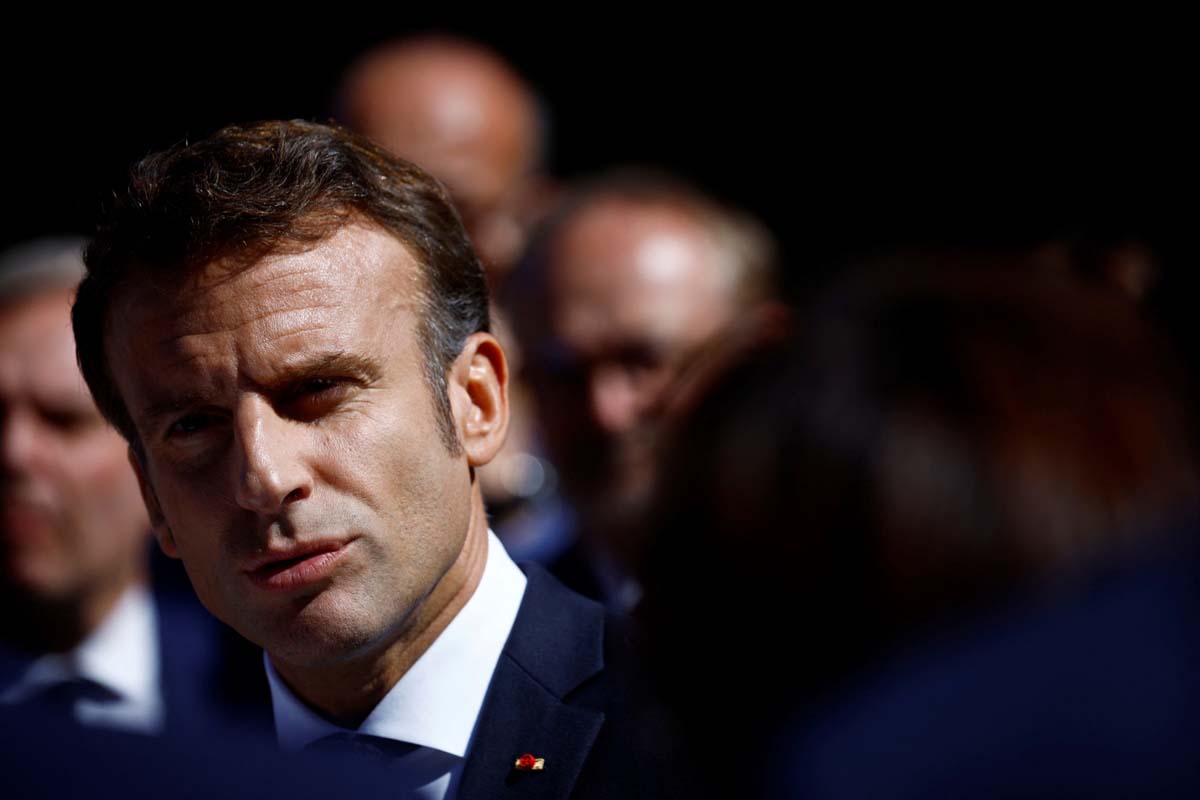
403
Sorry!!
Error! We're sorry, but the page you were looking for doesn't exist.
Macron navigates complicated bilateral ties with China before Xi Jinping's visit
(MENAFN) As Chinese President Xi Jinping prepares for a rare two-day visit to France, President Emmanuel Macron is gearing up to address critical issues in bilateral relations. Macron aims to utilize this opportunity to address two primary concerns: reducing trade imbalances between France and China and leveraging Chinese influence towards resolving the ongoing conflict in Ukraine. However, achieving these goals won't be straightforward, given the backdrop of escalating trade tensions between Europe and China.
France's stance aligns with the broader European Union's stance, particularly concerning the investigation into Chinese electric vehicle exports. An Elysee adviser emphasized the necessity of pushing Chinese authorities for more substantial trade assurances, signaling France's commitment to addressing trade imbalances.
During the visit, official discussions will involve joint talks between Xi Jinping, Macron, and European Commission President Ursula von der Leyen. However, inherent divisions within the EU, notably between France and Germany, pose challenges to presenting a united front in influencing China's policies.
The absence of German Chancellor Olaf Scholz from the Paris meetings underscores the complexities of European coordination. Mixed messages from European leaders risk diluting their collective influence on Xi Jinping's agenda. Noah Barkin, a senior advisor closely monitoring EU-China relations, highlights the importance of consistency in messaging to effectively engage with China.
Beyond trade issues, France seeks progress in opening Chinese markets to its agricultural exports and addressing concerns in the cosmetics industry regarding intellectual property rights. These discussions underscore the multifaceted nature of Franco-Chinese relations and the diverse range of challenges and opportunities they encompass.
In summary, Macron's diplomatic efforts ahead of Xi Jinping's visit underscore France's commitment to addressing trade imbalances and leveraging Chinese influence on critical global issues, despite the complexities inherent in EU coordination and divisions among member states.
France's stance aligns with the broader European Union's stance, particularly concerning the investigation into Chinese electric vehicle exports. An Elysee adviser emphasized the necessity of pushing Chinese authorities for more substantial trade assurances, signaling France's commitment to addressing trade imbalances.
During the visit, official discussions will involve joint talks between Xi Jinping, Macron, and European Commission President Ursula von der Leyen. However, inherent divisions within the EU, notably between France and Germany, pose challenges to presenting a united front in influencing China's policies.
The absence of German Chancellor Olaf Scholz from the Paris meetings underscores the complexities of European coordination. Mixed messages from European leaders risk diluting their collective influence on Xi Jinping's agenda. Noah Barkin, a senior advisor closely monitoring EU-China relations, highlights the importance of consistency in messaging to effectively engage with China.
Beyond trade issues, France seeks progress in opening Chinese markets to its agricultural exports and addressing concerns in the cosmetics industry regarding intellectual property rights. These discussions underscore the multifaceted nature of Franco-Chinese relations and the diverse range of challenges and opportunities they encompass.
In summary, Macron's diplomatic efforts ahead of Xi Jinping's visit underscore France's commitment to addressing trade imbalances and leveraging Chinese influence on critical global issues, despite the complexities inherent in EU coordination and divisions among member states.

Legal Disclaimer:
MENAFN provides the
information “as is” without warranty of any kind. We do not accept
any responsibility or liability for the accuracy, content, images,
videos, licenses, completeness, legality, or reliability of the information
contained in this article. If you have any complaints or copyright
issues related to this article, kindly contact the provider above.
















Comments
No comment